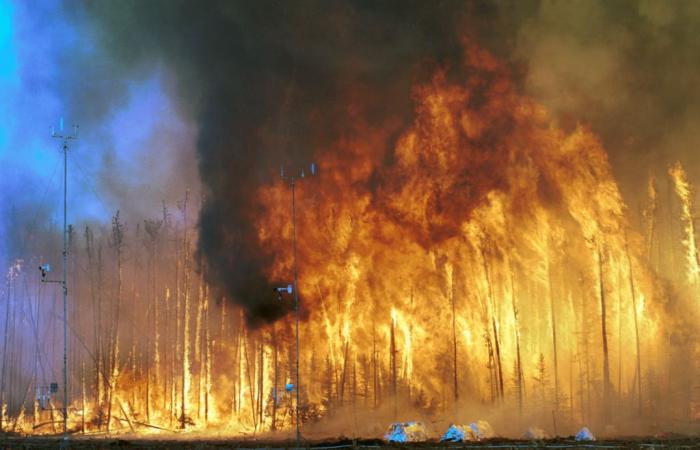Air pollution caused by fires is responsible for more than 1.5 million deaths each year globallyaccording to a study published in the scientific journal The Lancet.
These deaths, mostly concentrated in developing countries, are unfortunately expected to increase as climate change intensifies the frequency and severity of forest fires.
The researchers, part of an international collaboration, analyzed data on natural forest fires as well as agricultural burning used to clear land. According to this study covering the period from 2000 to 2019, approximately 450,000 annual deaths are linked to heart disease and 220,000 to respiratory diseases are directly attributable to the air pollution generated by these fires.
Fine particles from fires
In total, smoke and fine particles associated with fires cause 1.53 million deaths per year worldwide.
The geographic distribution of deaths shows that more than 90% occur in low- and middle-income countries. Nearly 40% of these human losses are recorded in sub-Saharan Africa, while the most affected nations include China, the Democratic Republic of Congo, India, Indonesia and Nigeria.
Toxic fog
In India, illegal agricultural burning in the north of the country worsen already critical air pollution, generating levels of fine particles way beyond the standards international and covering New Delhi in a thick toxic fog.
Researchers denounce a “climate injustice”emphasizing thatPoor countries suffer the most serious impacts while having limited access to solutions. Measures to mitigate the effects of smoke, such as air purifiers, masks or distancing from affected areas, remain out of reach for many populations.
Alarming observation
Faced with this alarming observation, the authors of the study emphasize the urgent need to act to reduce the number of deaths linked to fire pollution. They recommend increased support, both financial and technological, for the most affected communities. They advocate initiatives aimed at preventing fires, improving agricultural management, and providing tools to reduce people’s exposure to smoke.
This study, published shortly after the UN negotiations where aid to developing countries was deemed insufficient, comes at a time when environmental crises are getting worse. In Ecuador, for example, forest fires recently destroyed more than 10,000 hectares in the south of the country…






